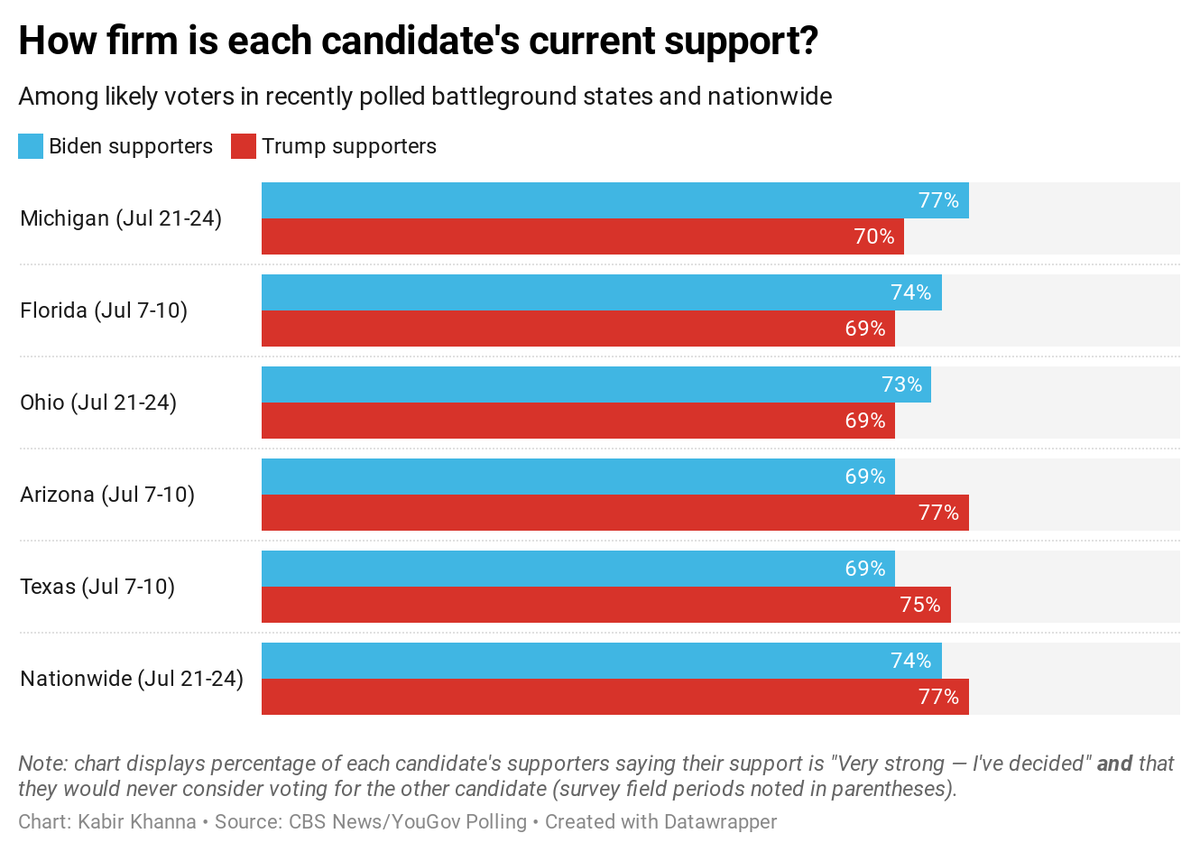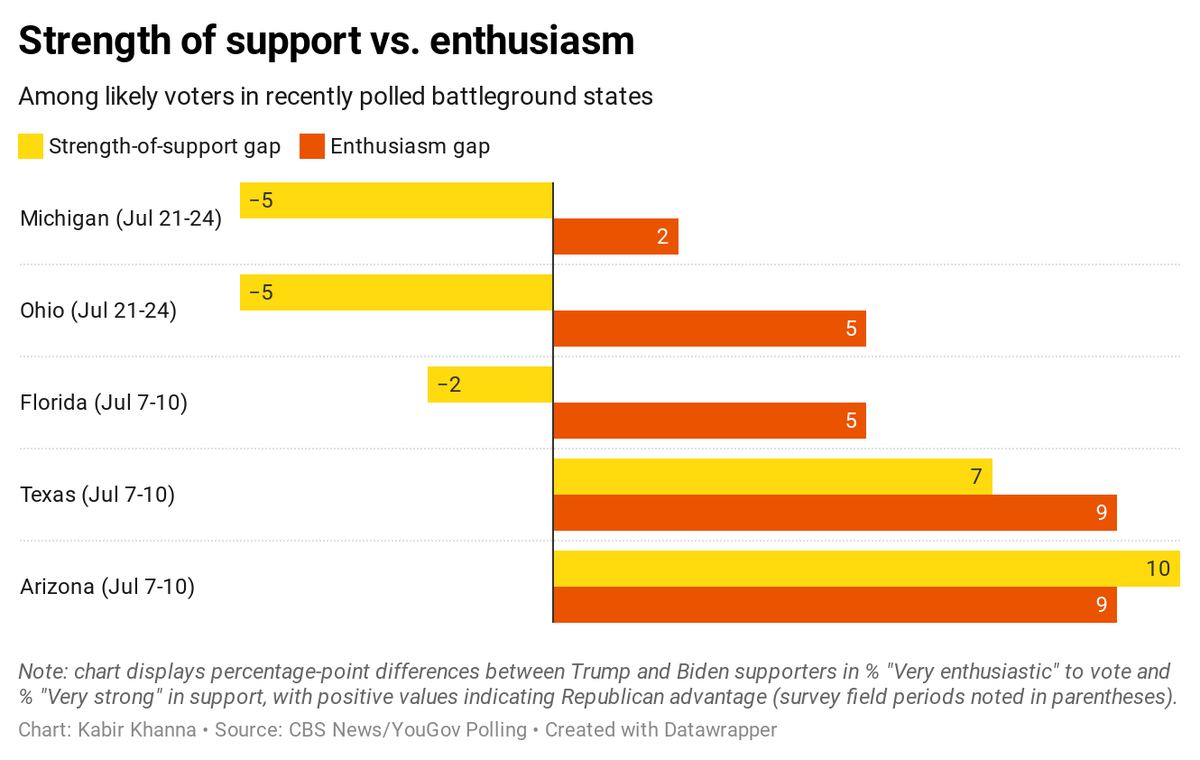More from our @CBSNews/ @YouGov battleground polls: how should we interpret Biden-Trump enthusiasm gaps?
https://www.cbsnews.com/news/trump-biden-cbs-news-poll-analysis-enthusiasm-gap/
https://www.cbsnews.com/news/trump-biden-cbs-news-poll-analysis-enthusiasm-gap/
We find greater enthusiasm about "voting in the election in November" among Trump supporters, especially in Arizona and Texas polling we did earlier in this month
Enthusiasm gap ranges from 2-9 points, depending on state
(Note different field periods for AZ/FL/TX & MI/OH below)
Enthusiasm gap ranges from 2-9 points, depending on state
(Note different field periods for AZ/FL/TX & MI/OH below)
An unenthusiastic vote counts the same as an enthusiastic one, so does the measure tell us who's firmly behind their candidate or who'll actually turn out this fall?
Most voters are firm: they say their support is very strong *and* that they would never consider other candidate!
Most voters are firm: they say their support is very strong *and* that they would never consider other candidate!
Biden has strength-of-support advantage in some states, particularly in recent polling in Michigan and Ohio
Trump leads on both enthusiasm and strength of support in in Arizona & Texas (which both look very competitive at the moment)
(Negative values below mean Biden advantage)
Trump leads on both enthusiasm and strength of support in in Arizona & Texas (which both look very competitive at the moment)
(Negative values below mean Biden advantage)
Even Biden backers who aren't very enthusiastic mostly say their support is very strong, even more so than not-very-enthusiastic Trump supporters
Despite lack of enthusiasm, they've made up their minds — enthusiasm deficit due in part to why they're voting Biden: to oppose Trump
Despite lack of enthusiasm, they've made up their minds — enthusiasm deficit due in part to why they're voting Biden: to oppose Trump
As for turnout, 2018 offers clues...
In our polling, Democrats and Republicans showed similar levels of enthusiasm. When we recontacted them after the elections, we found that pre-election enthusiasm did little to predict turnout, controlling for self-reported turnout likelihood
In our polling, Democrats and Republicans showed similar levels of enthusiasm. When we recontacted them after the elections, we found that pre-election enthusiasm did little to predict turnout, controlling for self-reported turnout likelihood
Also in '18, Ds consistently scored higher than Rs on two dimensions: anger and perceived importance of election
Neither is enthusiasm but important signs of discontent that drove historic turnout — similar dynamic now, but unclear how it translates to actual votes in a pandemic
Neither is enthusiasm but important signs of discontent that drove historic turnout — similar dynamic now, but unclear how it translates to actual votes in a pandemic

 Read on Twitter
Read on Twitter





